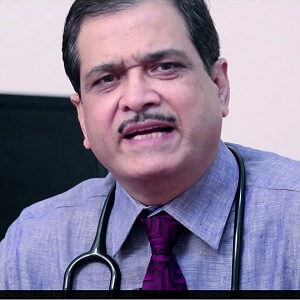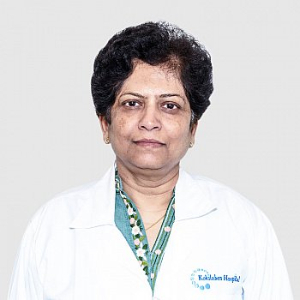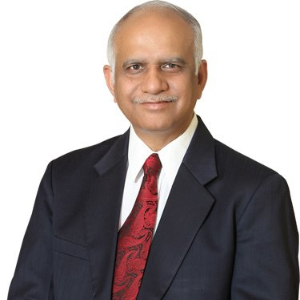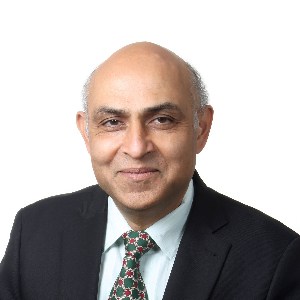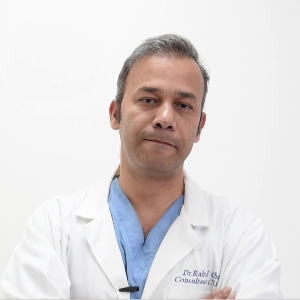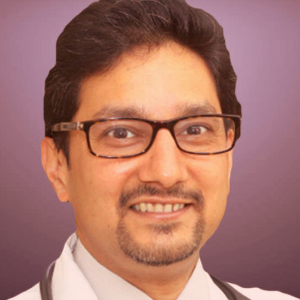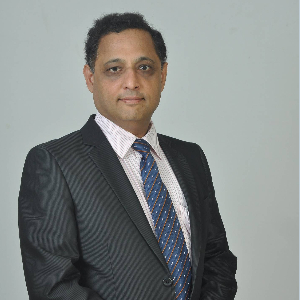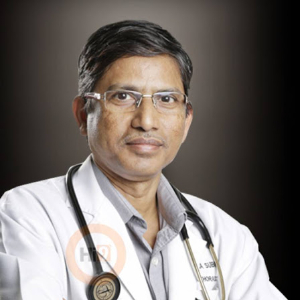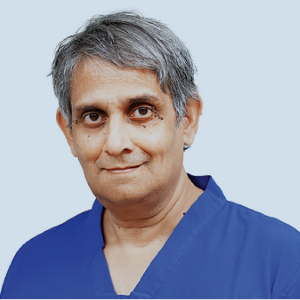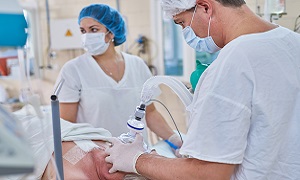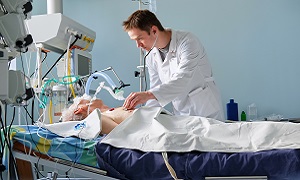Best Doctors in India for Aortic Valve Repair / Replacement
- Interventional Cardiologist, Chennai, India
- Over 22 years’ experience
Profile Highlights:
- Dr. Rakesh P Gopal is an Interventional Cardiologist who has done outstanding work in Interventions for Valvular Heart Disease, Mitral, Aortic, Pulmonary Balloon Valvotomy, and Initiation for Trans Aortic Valve replacement.
- He is the editor of the book Cardiovascular Interventional Trials Update, published by Mathew Foundation and Asia Pacific Interventional Cardiology India Educational Trust.
- Dr. Gopal is a firm believer in the No Re-use idea of disposable materials in interventional procedures.
- Interventional Cardiologist, New Delhi, India
- Over 26 years experience
Profile Highlights:
- Dr. Rajeev Kumar Rajput is one of the best Cardiologists in India with nearly 23 years of experience. He is a clinical cardiologist engaged in diagnosing and treating cardiovascular diseases.
- Dr. Rajput is currently working as a senior consultant with Indraprastha Apollo Hospitals, New Delhi, and also offers patient care at the Heart & Gynae Clinic.
- Dr. Rajeev Kumar Rajput specializes in Angiography and Interventional Cardiology. The treatments provided involve Neonatal and Infant cardiac surgeries, Device Closure, and Valve replacement. He has expertise in Aortic Aneurysm Surgery, Vascular Surgery, Percutaneous Coronary Interventions, Endovascular Repair, Cardiac Catheterisation, Open Heart Surgery, and MV replacement.
- Dr. Rajput is credited with publishing several papers in noted medical journals.
- Pediatric Cardiologist, Mumbai, India
- Over 20 years’ experience
Profile Highlights:
- Dr. Snehal Kulkarni is a renowned pediatric cardiologist who specializes in the management and treatment of fetal cardiac diseases, non-invasive pediatric cardiology, and Adult Congenital heart diseases.
- She is an expert in Diagnostic and Interventional Cardiac Catheterization, Stent implantation, Cardiac Pathology, and Balloon dilatation.
- She has more than 2 decades of experience in pediatric cardiology and has acquired her training from prestigious institutions in USA.
- Cardiac Surgeon, New Delhi, India
- Over 36 years’ experience
Profile Highlights:
- Dr. S. K Sinha is one of the top-most reputable cardiac surgeons in India who has performed over 10000 heart surgeries, 2000 minimal access cardiac surgeries cases and has 36+ years of rich experience.
- As one of the best cardiac surgeons in India, Dr. Sinha has both performed and taken lead as the administrative and clinical mentor in several cases where his supervision and mentorship paired with his vast knowledge have helped future cardiac surgeons shape their careers.
- Senior Consultant - Cardiology, Dwarka, New Delhi, India
- Over 35 years’ experience
Profile Highlights:
- Dr. Monik Mehta is one of the best interventional cardiologists in India for the implantation of heart failure devices.
- His specialization also lies in performing complex Angioplasties and complex coronary interventions.
- Having received his training from Mahidol University, Bangkok, Dr. Monik Mehta has also worked with the United Nations as a cardiologist in Cambodia.
- Currently, he works as a Senior Consultant – Cardiology, in Manipal Hospitals, Dwarka, New Delhi.
- Senior Cardiothoracic and Heart Lung Transplant Surgeon, New Delhi, India
- Over 23 years’ experience
Profile Highlights:
- Dr. Rahul Chandola is a renowned cardiothoracic and vascular surgeon in India specializing in Adult CTVS along with heart and lung transplant surgeries.
- He is an expert heart and lung transplant surgeon and has performed over 100 heart transplant surgeries with successful results in both adult and pediatric patients.
- Currently, he works as a Senior Cardiothoracic and Heart Lung Transplant Surgeon in PSRI Hospital, New Delhi.
- Interventional Cardiologist, New Delhi, India
- Over 20 years’ experience
Profile Highlights:
- Dr. Vishal Rastogi is a leading Interventional Cardiologist in Delhi specializing in Heart Failure Management.
- Dr. Vishal Rastogi has over 20 years of experience in the field and holds the credit for the largest number of Impella Left Ventricular Assist Device (LVAD) implants in critically ill patients in India.
- He has performed a large number of Coronary and Peripheral Angiographies and diagnostic cardiac catheterizations in both adult and pediatric patients among several other interventional cardiac procedures.
- Cardio Thoracic & Vascular Surgeon, Mumbai, India
- Over 30 years’ experience
Profile Highlights:
- Dr. Anvay Mulay is a well-known cardiothoracic and vascular surgeon in Mumbai and one of the best heart transplant surgeons in India.
- He holds an extensive experience of close to 3 decades and has been associated with renowned cardiac hospitals in India, US, and UK.
- Dr. Mulay is one of the top surgeons for Adult cardiac procedures in India. He was the first to introduce LVAD in West and Central India when he performed the surgery on a 49-year-old patient.
- Cardiothoracic & Vascular Surgeon, Hyderabad, India
- Over 30 years’ experience
Profile Highlights:
- Dr. G Rama Subramanyam is a well-known cardiothoracic and vascular surgeon who specializes in open-heart surgery and has performed more than 5000 such procedures since 1997.
- He is also an expert in Minimally Invasive Coronary Artery Bypass Grafting and heart valve surgeries that includes over 200 Ischemic mitral valve repair surgeries and 100 myxomatous and Rheumatic mitral valve repair surgeries.
- Heart Lung Transplant Surgeon, Chennai, India
- Over 40 years’ experience
Profile Highlights:
- Dr. K R Balakrishnan is a highly coveted cardiac surgeon in India and is probably one of the best heart transplant surgeons in the country.
- He has performed the largest number of heart transplants in the country including 180+ heart transplants, 23 lung transplants, and 9 heart & lung transplant procedures. He performed the first permanent artificial heart transplant in India with HeartMate II LVAD.
- Dr. K R Balakrishnan has over 40 years of experience in the field and has the expertise to perform cardiac surgeries on patients of all ages. He has performed over 16000 cardiac surgeries for various types of heart diseases and disorders till date.
Best Hospitals in India for Aortic Valve Repair and Replacement
Lilavati Hospital & Research Centre, Mumbai
- City: Mumbai, India
Hospital Highlights:
- Lilavati Hospital & Research Centre is India’s premier multi-speciality tertiary care hospital and has been recognised as a global medical excellence centre.
- Lilavati Hospital & Research Centre has built an unrivalled level of trust with its patients over the years, thanks to a solid foundation that comprises cutting-edge facilities, the best medical competence, research, education, and charity endeavours.
- The hospital is quite proud of the fact that it now serves patients from all kinds of backgrounds, not just from the United States but from all around the world.
- The hospital has a total of 323 beds, one of the largest Intensive Care Units (ICUs), 12 Operation Theatres with modern amenities, over 300 consultants, and almost 1,800 personnel.
Venkateshwar Hospital, Dwarka, New Delhi
- City: New Delhi, India
Hospital Highlights:
- State-of-the-art technology and devoted healthcare professionals have been brought together under one roof at Venkateshwar Hospital to provide genuine medical care. The hospital’s professionals work together as a team to deliver the best possible treatment to their patients, using the most sophisticated equipment and information technology.
- Venkateshwar Hospital’s mission is to attain global excellence in healthcare by employing evidence-based, ethical clinical practices and cutting-edge technology by a team of highly skilled experts.
Marengo Asia Hospital, Faridabad
- City: Faridabad
Hospital Highlights:
In the sprawling city of Faridabad, where healthcare needs are diverse and ever-evolving, one institution has consistently stood out as a beacon of excellence in the field of medicine—Marengo Asia Hospital. Established with a vision to provide world-class healthcare services to the community it serves, Marengo Asia Hospital has emerged as a trusted name synonymous with quality, compassion, and innovation in healthcare.
MGM Healthcare, Chennai
- City: Chennai, India
Hospital Highlights:
- Located in Chennai, India, MGM Healthcare is a top multispecialty hospital that provides all medical services under one roof.
- Since its founding in 2019, MGM Healthcare has quickly become a leading national referral centre, creating several innovative flagship initiatives.
- MGM Healthcare combines next-generation medical and digital technologies to provide better patient results.
- With 12 centres of excellence, more than 400 inpatient beds, 100 intensive care unit beds, and 24/7 emergency care, MGM Healthcare leaves no chance in redefining the patient experience in Chennai.
- MGM Healthcare boasts 250+ expert doctors across 30+ departments, including Cardiology, Pulmonology, Neurology, Obstetrics & Gynaecology, and more.
- They house 12 specialized Centres of Excellence, including Neurosciences, Orthopaedics, and Multi-Organ Transplantation.
- Their team of doctors, nurses, and paramedics works together to give every patient individualized treatment.
Aortic Valve Replacement
Purpose
There are several types of valve diseases for which aortic valve replacement might be considered. Some of them include:
Aortic valve regurgitation- This condition is known to occur when your blood flows backward through your aortic valve into the left ventricle each time the ventricle relaxes. Normally, blood is supposed to flow in one-way direction from the ventricle to the aorta. A dysfunctional or a leaky valve can lead to the backflow. This may be due to the valve deteriorating, an abnormal valve shape present at birth or due to an infection.
Aortic valve stenosis- The stenosis can lead an aortic valve to become narrowed or obstructed, which can make it even more difficult for the heart to pump blood into the aorta. This may be caused by multiple factors, such as congenital heart disease, thickening of the valve’s closure flaps or post-inflammatory changes, such as those which are associated with rheumatic heart disease.
Congenital heart disease- This can contribute to either aortic valve regurgitation or stenosis. It can also result in other problems that can prevent the proper functioning of the aortic valve. For example, a person might be born with an aortic valve not having enough tissue flaps or there may not be an opening in the valve to allow normal blood flow. The valve can also be of the wrong shape of size.
For some people who are having mild aortic valve disease without any symptoms, careful monitoring under an experienced doctor’s supervision might be all that is required.
However, in many cases aortic valve disease and dysfunction can worsen over time despite medical treatment. Most aortic valve conditions are mechanical problems that are not treatable with medications alone. Such conditions can eventually require surgery for reducing symptoms.
Your doctor and healthcare team will decide whether to go for repair or replacing the heart valve. It can depend on various factors, such as the severity of your aortic valve disease, your age and overall health or whether you require any heart surgery for any additional heart problem.
Preparation
Before you undergo the surgery for having your aortic valve repaired or replaced, your doctor and treatment team will be explaining what you can expect before, during and after your surgery as well as the potential risks the surgery may cause.
You need to discuss with your doctor and the treatment team any questions you might have about your procedure.
Before you are admitted to the hospital for your surgery, talk to your caregivers about your hospital stay and discuss any help you may require when you return home.
Also remember to talk to your doctor about when you can resume taking your medications regularly and whether you will be able to take them before your surgery. Also, ask whether you should stop eating or drinking the night before the surgery. You may also need to bring several items to the hospital including a list of your medications, eyeglasses, hearing aids, etc.
Procedure
For the aortic valve replacement procedure, you will be receiving anesthetics so that you will not be feeling any pain. You will be unconscious during the procedure.
You will be connected to a heart-lung bypass machine, which will keep your blood moving through your body during the procedure.
First, your doctor will be removing the aortic valve and replacing it with a mechanical valve or a valve made from a pig, cow or human heart tissue (valve).
Often biological tissue valves eventually need replacement as they degenerate over time. If you have a mechanical valve, you will require blood-thinning medications for the rest of your life for preventing blood clots. Doctors will be discussing with you the risks as well as the benefits of each type of valve and discuss which valve is appropriate for you.
The surgery can be performed through traditional open-heart surgery or minimally invasive methods. It involves smaller incisions than those used in open-heart surgery. There is another type of minimally invasive aortic valve replacement which is known as transcatheter aortic valve replacement.
However, minimally invasive aortic valve replacement is generally less common since not all situations are best addressed by this method of access to the damaged valve. Results similar to those with traditional open-heart surgery can be achieved if it is performed by experienced surgeons.
After the procedure
If you had open-heart surgery, you will generally require spending a day or more in the ICU. You will receive oxygen, fluids, medications as well as nutrition through the intensive care unit. Other tubes will be draining urine from your bladder, draining fluid and blood from your chest.
Later you’ll be moved to a regular hospital room where you will need to spend some days. The amount of time you will spend in the ICU and hospital may vary depending on your condition and procedure.
During your stay at the hospital, your treatment team will be watching for signs of infection in your incision sites. They will also be checking your blood pressure, breathing and heart rate periodically. If you experience pain after the surgery, they will be working with you in managing it.
Your doctor might also advise you to avoid driving a car or lifting anything more than 10 pounds for a few weeks.
Risks
There are certain risks associated with aortic valve replacement. The type of procedure and the expertise of your health care team also plays a role.
Although most people do well during this surgery, it might lead to a few problems, which include:
- Bleeding after surgery
- Infection
- Blood clots
- Heart rhythm getting thrown off for a while
- Kidney problems that can last for multiple days after surgery
- Stroke
- New valve not functioning or wearing out over time
Although rare death can also occur in a few cases. To minimize risk it is recommended that the surgery is performed by an experienced team of qualified doctors.
Aortic Valve Replacement & Aortic Valve Repair
Aortic valve repair and aortic valve replacement are procedures that treat diseases affecting the aortic valve. Types of Aortic Valve Surgery are:
- An annuloplasty is a procedure to tighten or reinforce the ring around a valve in the heart.
- A valvuloplasty, also known as balloon valvuloplasty or balloon valvotomy, is a procedure to repair a heart valve that has a narrowed opening.
Open Heart surgery versus Catheter method of Heart Replacement
Traditionally, all valve replacement procedures required a open-heart surgery. However, recent advances in catheter methods have resulted in the development of catheter- based (non-surgical) heart valve replacement procedures.
The Catheter based approach to Valve Repair is generally recommended in case of Valve Stenosis (condition in which the valve narrows down).The procedure is called Transaortic Valve Implantation/ Replacement (TAVI/TAVR) for Aortic Valve Repair. In case of Mitral Valve Repair, it is called Transaortic Mirtral Valve Implantation/ Replacement (TMVI/R).
TAVI / TMVI is the first line of treatment in cases of Valve narrowing /stenosis.
The advantage of TAVI/TMVR is that in this procedure, the valve is replaced with no scar (unlike surgery) and recovery time is minimal.
However, in cases of Valve Regurgiation (leakage), surgery is still required / recommended.


